Animal Jobs A-Z: Exploring 40+ Exciting Career Opportunities
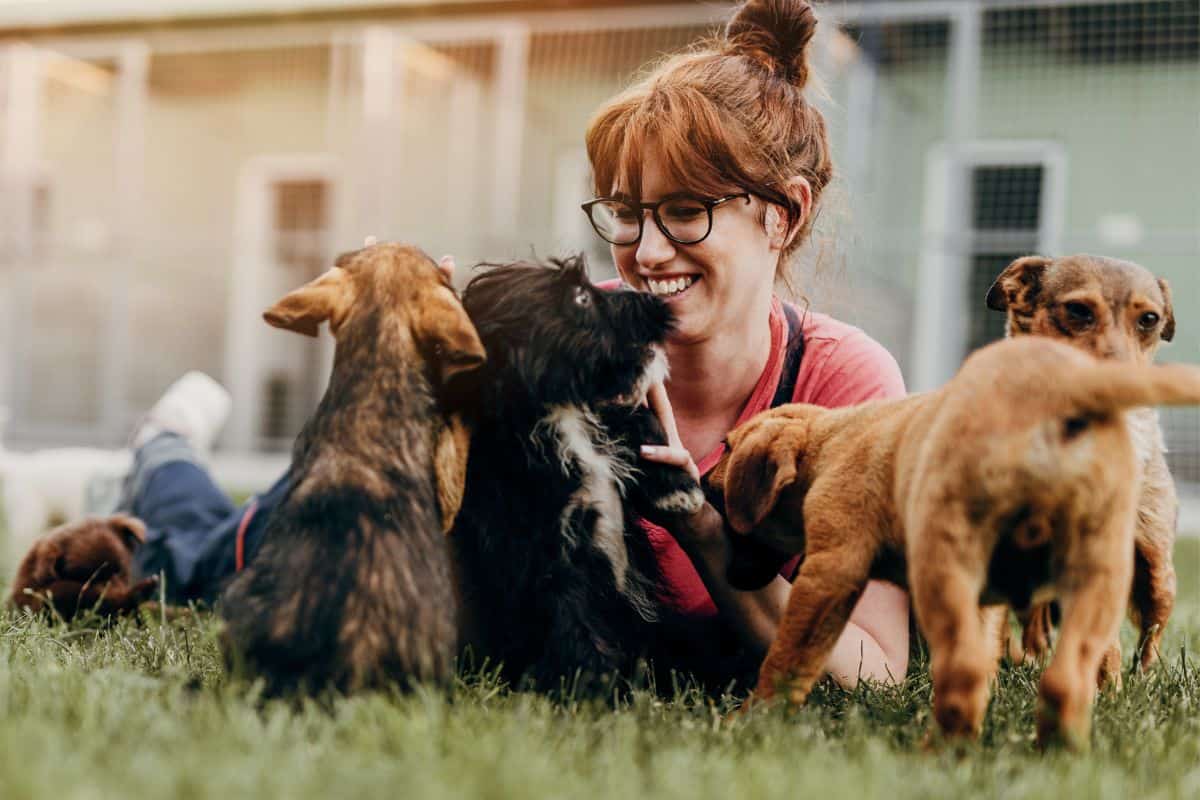
Welcome to a comprehensive exploration of diverse animal jobs, unveiling 40+ distinctive career opportunities within the fascinating world of animal. From therapy dogs to wildlife conservation, this curated collection delves into various segments. Included are pet jobs, veterinary jobs, large animal jobs, wild animal jobs, exotic animal jobs, and jobs that study animals.
This exploration aims to underscore the values of commitment, responsibility, and ethical treatment inherent in the animal profession. Join us as we embark on a journey through the rich and meaningful world of animal-related careers.
Types of Animal Jobs
Pet Jobs

Pet jobs typically refers to job opportunities or occupations involving care, management, training, or medical treatment of pets. These jobs can vary widely and might include roles such as pet sitters, dog walkers, pet groomers, and pet trainers.
Additionally, a pet job might also refer to an errand or task related to the care and maintenance of pets. This includes activities such as feeding, grooming, walking, or taking the pet to a veterinarian.
An animal behaviorist is a professional who studies and analyzes the behavior of animals, with a focus on understanding their instincts, learning patterns, and social interactions. They may work with a variety of animals and employ techniques such as observation, experimentation, and behavior modification to help improve animal welfare and address behavioral issues. They differ from dog trainers who tend to focus on teaching skills in that they are better suited to address underlying mental and emotional issues that impact unwanted behaviors.
An animal shelter worker or volunteer is an individual who assists in the day-to-day operations of an animal shelter or rescue organization. Their responsibilities may include feeding and caring for animals, cleaning enclosures, socializing with the animals, assisting with adoptions, and providing general support to the shelter staff. Their primary goal is to provide care and temporary housing for animals in need.
A bather/brusher is an individual who provides basic grooming services to animals, while assisting a pet groomer or stylist. They assist groomers by preparing animals for grooming sessions, which involves bathing, drying, and brushing their coats. They also clean and maintain grooming tools and equipment.
A pet boarding and daycare technician works in facilities that offer temporary care for pets when their owners are away or unable to provide care. They ensure the safety, comfort, and well-being of boarded pets by providing food, exercise, playtime, and monitoring their health. They may also assist with grooming, administering medications, and maintaining a clean and organized environment.
A dog trainer is a professional who uses various techniques and methods to train dogs and modify their behavior. They work with dogs of different ages, breeds, and temperaments to teach skills and manners, address behavioral issues, and enhance communication between dogs and their owners. Dog trainers generally focus on skills and manner training but may also specialize in areas such as dog sports or service dog training.
Check out our school to become a dog trainer.
A dog walker or pet sitter is an individual who provides exercise and care for dogs or other pets when their owners are away or unable to do so. They may take dogs for walks, engage them in play activities, provide meals, administer medication if needed, and ensure the general well-being of the pets under their care.
A K9 police officer is a law enforcement professional who works with specially trained dogs in police operations. These dogs, often referred to as police dogs or K9s, are utilized in tasks such as tracking suspects, detecting drugs or explosives, search and rescue operations, and apprehending criminals. K9 police officers handle and care for the police dogs and maintain a strong bond and partnership with them.
A pet adoption counselor works in animal shelters or rescue organizations and assists individuals or families in finding suitable pets for adoption. They assess the needs and preferences of potential adopters, provide information on available animals, and help match them with the right pet based on factors such as lifestyle, experience, and compatibility.
A pet bereavement counselor provides emotional support and guidance to individuals who are grieving the loss of a pet. They help pet owners navigate the grieving process, cope with the loss, and provide a safe space for expressing their feelings. Pet bereavement counselors may offer individual or group counseling sessions, and they may also educate pet owners about end-of-life care and pet loss resources.
A pet breeder selectively breeds animals, typically focusing on specific breeds or characteristics. They aim to produce offspring with desirable traits, conforming to breed standards and ensuring genetic health. Pet breeders prioritize responsible breeding practices, including genetic testing, proper care of parent animals, and finding suitable homes for the offspring.
A pet groomer or stylist is a professional who provides grooming services to pets. They do many of the duties associated with a bather/brusher but have a higher level of skill when it comes to trims and haircuts. Pet groomers may also perform nail trims, ear cleaning, and other aesthetic services to enhance the appearance and hygiene of pets.
A pet photographer specializes in capturing photographs of pets, often with their owners or in various settings. They have the skills to work with animals, ensuring a comfortable and engaging environment to capture memorable and expressive images of pets. Pet photographers may work in studios, at events, or on-location.
Veterinary/Medical Jobs
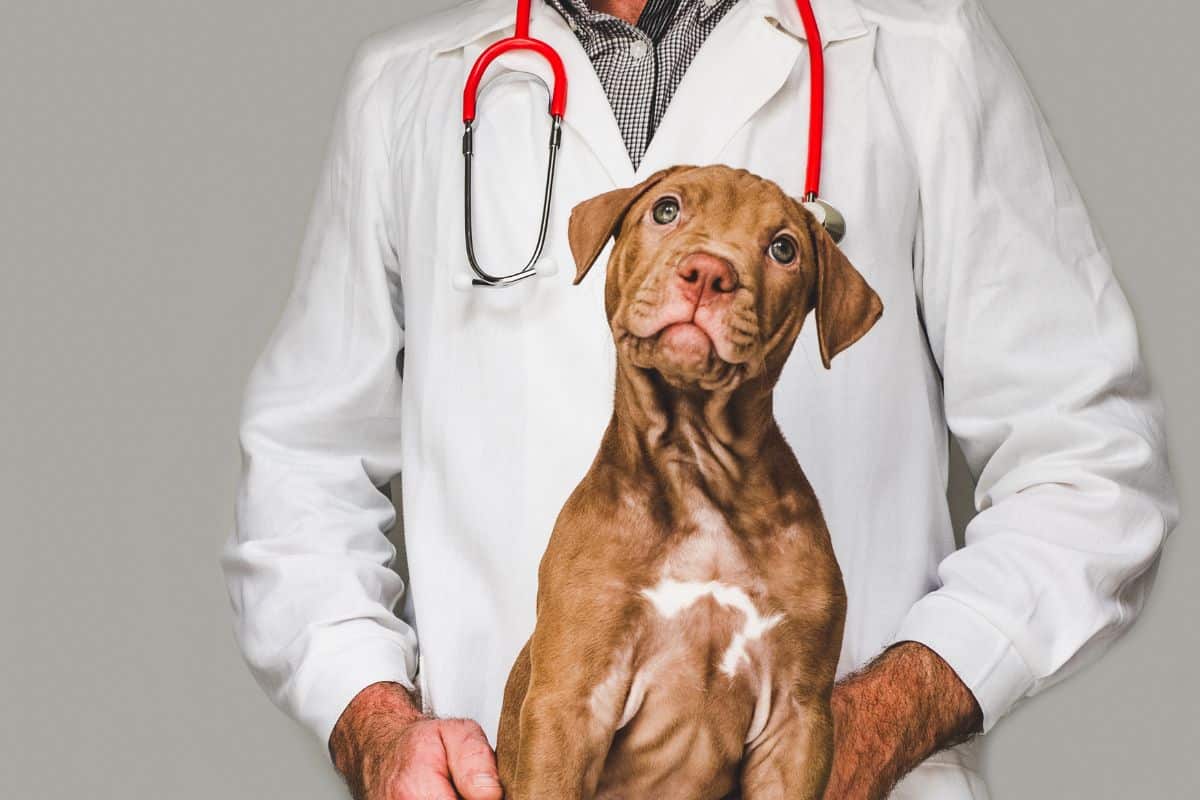
Veterinary jobs refer to various professional roles that involve caring for the health and well-being of animals. This can include direct care roles, such as veterinarians who diagnose and treat medical conditions in animals, and veterinary technicians or nurses who assist in providing medical care.
Other roles may include veterinary pathologists who study diseases in animals, or veterinary epidemiologists who study disease patterns and outbreaks.
Moreover, some veterinary jobs are in academia, research, public health, and the pet food and animal pharmaceutical industries. Regardless of the specific role, individuals in veterinary jobs use their knowledge of animal health and medicine to improve animal welfare, protect public health, and sometimes contribute to scientific research.
An animal chiropractor is a specialist who provides chiropractic care to animals. They are trained to assess and treat musculoskeletal problems in animals, particularly focusing on the spine and nervous system. By using manual manipulation techniques, they aim to alleviate pain, improve mobility, and enhance the overall well-being of animals.
An animal massage therapist specializes in providing therapeutic massages to animals. Through the use of various techniques such as Swedish massage, acupressure, and myofascial release, they aim to reduce muscle tension, alleviate pain, improve circulation, and promote relaxation in animals. Animal massage therapists often work closely with veterinarians and other animal health professionals.
An animal nutritionist is an expert in the field of animal nutrition. They study the dietary needs and requirements of different animal species and develop balanced and appropriate nutrition plans. Animal nutritionists often work with pet owners, farmers, and animal-related industries to ensure optimal health, growth, and performance of animals through proper nutrition.
A Pet CPR & First Aid Instructor is an individual who specializes in teaching others how to provide emergency care and lifesaving techniques to pets. They are knowledgeable in pet CPR (Cardiopulmonary Resuscitation) and first aid procedures, and they possess the necessary skills to train pet owners, animal professionals, and first responders in these techniques. Their role is to educate and empower individuals with the knowledge and skills required to respond effectively in critical situations, such as providing immediate care to pets experiencing cardiac arrest, choking, bleeding, or other emergencies.
A veterinarian, also known as a veterinary doctor or vet, is a medical professional who diagnoses, treats, and prevents diseases and injuries in animals. They provide medical care, perform surgeries, administer vaccines, prescribe medications, and offer general health advice to pet owners or animal caretakers. Veterinarians may work in private practices, animal hospitals, research institutions, or government agencies.
Veterinarians earn the highest income potential in the veterinary field. Learn more about how to become a veterinarian and vet school requirements.
The job of a veterinary assistant is to support veterinarians and veterinary technicians in their day-to-day duties. They assist with tasks such as animal restraint, cleaning and sanitizing equipment and facilities, preparing examination rooms, and providing basic care to animals. Veterinary assistants may also communicate with clients and schedule appointments. Check out our vet assistant school to start a rewarding career in the veterinary field.
A veterinary technician, also referred to as a vet tech, is a trained professional who assists veterinarians in providing medical care to animals. They perform tasks such as taking patient histories, administering medications, collecting samples, conducting laboratory tests, assisting in surgeries, and providing nursing care. Veterinary technicians play a crucial role in supporting veterinarians in their daily work.
A veterinary receptionist is the frontline staff member in a veterinary practice. They greet clients, schedule appointments, handle phone calls, manage medical records, and perform administrative tasks. Veterinary receptionists ensure smooth operations in the veterinary clinic and provide essential customer service to pet owners.
Large Animal Jobs
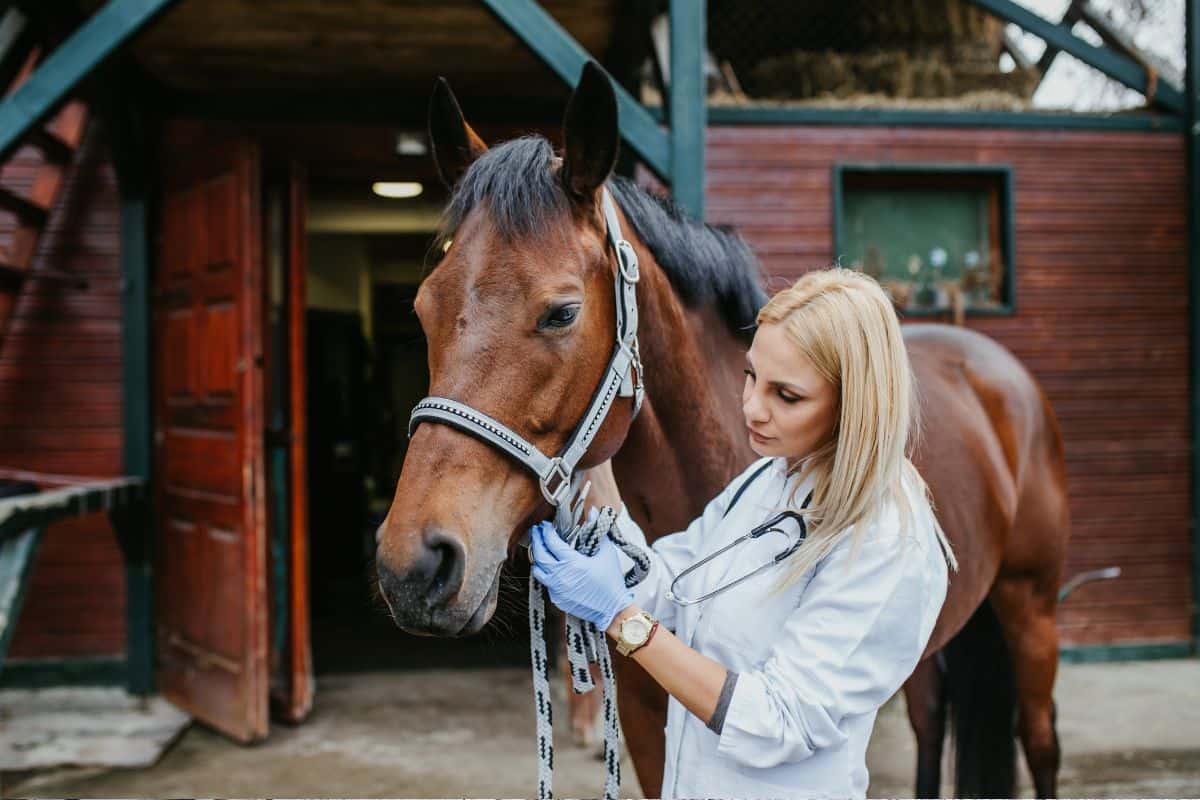
Large animal jobs refer to occupations and roles that involve working directly with large animals. These jobs typically require specific skills, knowledge, and specific qualifications in areas like veterinary science, zoology, biology, or animal husbandry.
Examples of large animal jobs include large animal veterinarians, zookeepers, animal behaviorists, wildlife rehabilitators, livestock managers, and marine mammal trainers. Each of these roles typically involve the care or study of large animals such as horses, elephants, lions, or whales.
An equine therapist is a professional who provides therapeutic treatments and rehabilitation for horses. They may employ various techniques such as massage, stretching, hydrotherapy, and exercise programs to address musculoskeletal issues, improve performance, and support the overall well-being of horses. Equine therapists often work closely with veterinarians and trainers.
A farrier is a skilled professional who specializes in hoof care and the shoeing of horses. They trim and shape horse hooves, apply horseshoes if necessary, and ensure proper balance and soundness of the horse's feet. Farriers work closely with horse owners, trainers, and veterinarians to maintain the health and functionality of horse hooves.
A large animal veterinarian specializes in the medical care and treatment of large animals, such as horses, cows, pigs, and other livestock. They provide preventive care, diagnose and treat illnesses and injuries, perform surgeries, and advise on herd health management. Large animal veterinarians may work in rural areas, on farms, or in veterinary clinics.
A livestock manager oversees the care, health, and productivity of livestock animals, such as cows, sheep, pigs, or poultry. They ensure proper nutrition, housing, breeding, and disease prevention measures for the animals. Livestock managers may also handle the management of herd or flock records, coordinate farm operations, and make decisions to optimize livestock production.
Wild Animal Jobs
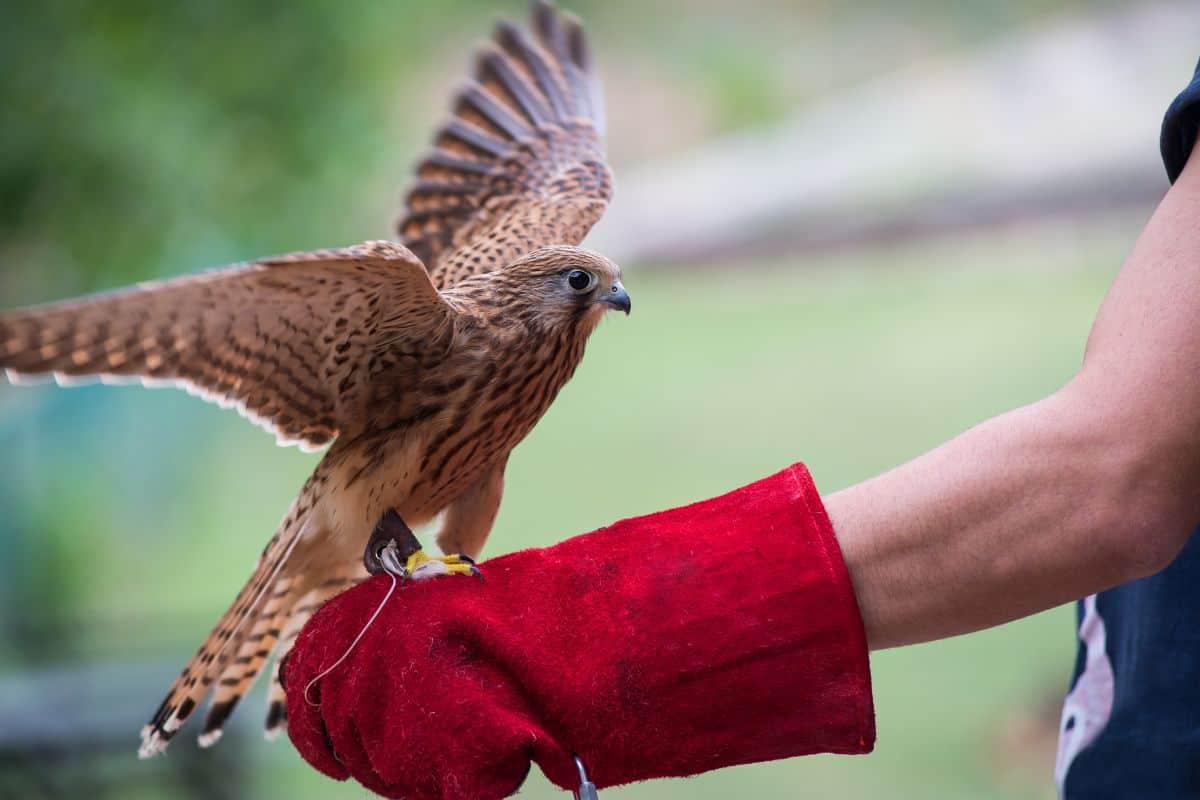
Wild animal jobs refer to a broad spectrum of professional occupations and roles that involve interacting with wild animals. These roles can be found in various sectors such as scientific research, public service, healthcare, education, and non-profit work.
Each of the following jobs requires a specific set of skills and knowledge about wild animals and their habitats. Moreover, they all play a vital role in conserving wildlife and ecosystems. They raise public awareness about the importance of biodiversity and environmental preservation.
An animal control officer is a professional responsible for enforcing animal-related laws and regulations. Their primary role is to protect public safety and animal welfare by addressing issues such as stray animals, animal cruelty, and dangerous or aggressive animals. They may also handle animal rescues, investigate complaints, and educate the public on responsible pet ownership.
An apiarist or beekeeper is a person who raises and manages honeybees. They maintain beehives, monitor the health and productivity of bee colonies, and collect honey, beeswax, and other bee-related products. Apiarists play a crucial role in pollination, honey production, and the conservation of bee populations.
A conservation officer, also known as a game warden, is a law enforcement professional responsible for protecting wildlife and enforcing conservation laws. They monitor and manage wildlife populations, investigate wildlife-related crimes, enforce hunting and fishing regulations, and educate the public on conservation practices. Conservation officers often work in natural parks, reserves, and rural areas.
A wild animal photographer specializes in capturing photographs of animals in their natural habitats. They often work in the field, observing and documenting wildlife behavior and interactions. Wild animal photographers play a vital role in raising awareness about wildlife conservation and promoting appreciation for the beauty and diversity of the natural world.
A wildlife forensic scientist applies scientific techniques and analysis to investigate crimes related to wildlife, such as poaching, illegal trade, or environmental offenses. They examine evidence, conduct DNA analysis, identify species, and provide expert testimony in legal proceedings. Wildlife forensic scientists play a crucial role in enforcing wildlife protection laws and supporting wildlife conservation efforts.
A wildlife rehabilitator is an individual who provides care, treatment, and rehabilitation to injured, orphaned, or sick wild animals. They assess and stabilize animals, provide medical treatment, and facilitate their recovery and eventual release back into their natural habitats. Wildlife rehabilitators may work in specialized wildlife rehabilitation centers or collaborate with wildlife agencies and veterinarians.
Exotic Animal Jobs
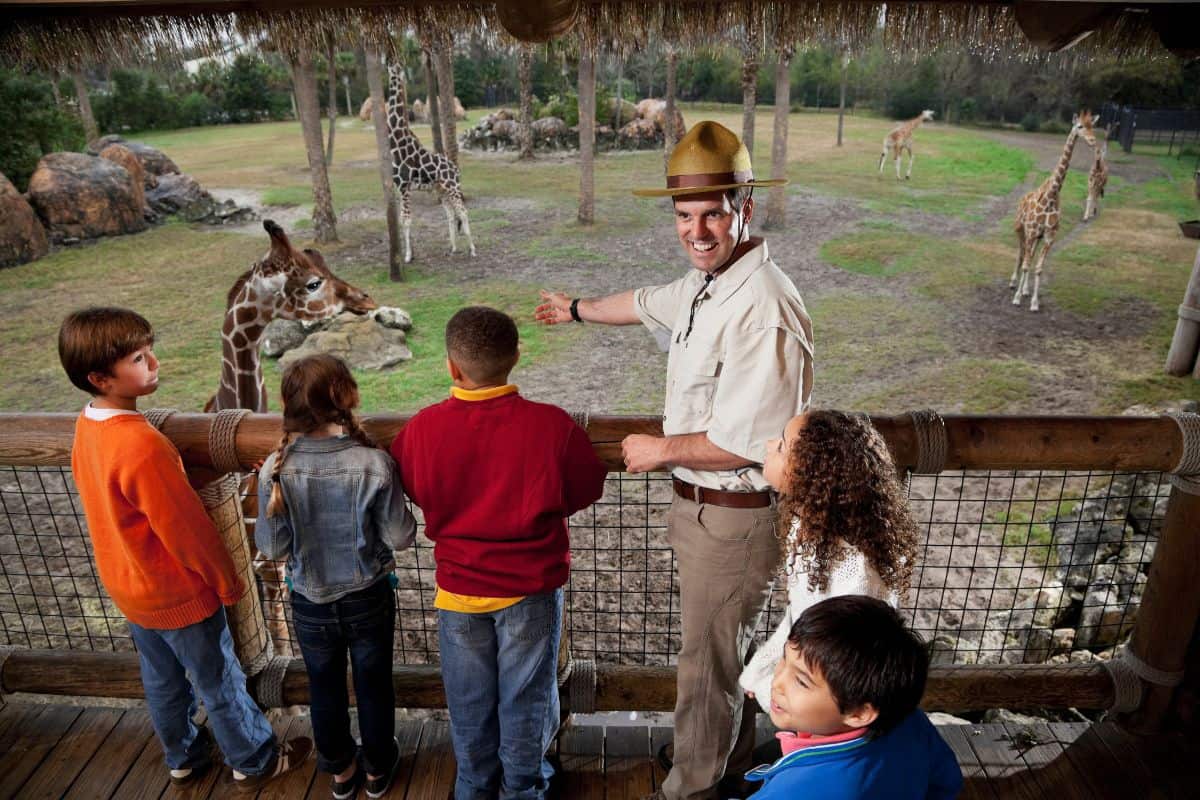
Exotic animal jobs refer to professions or roles that involve working with non-domestic or foreign species, often unique, rare, or unusual animals not typically found in a traditional domestic context. These jobs can be in a variety of fields such as zoology, veterinary medicine, wildlife conservation, animal behavior studies, animal training, wildlife photography, animal education, and more.
Examples might include an exotic animal vet, a zookeeper at a zoo specializing in exotic animals, a wildlife conservationist working with endangered exotic species, or a wildlife photographer capturing images of exotic animals in their natural habitats.
An aquarist is a professional who specializes in the care and management of aquatic animals and their habitats. They work in aquariums, zoos, or research facilities, ensuring the well-being of marine and freshwater species. Aquarists are responsible for maintaining water quality, designing and enriching habitats, feeding animals, monitoring health, and educating the public about aquatic life.
An exotic animal trainer is a professional who specializes in working with and training animals that are not commonly found in domestic settings. These trainers possess the knowledge and skills to handle and train a wide variety of non-native animals, such as large cats, reptiles, birds, primates, and other unique species. Exotic animal trainers may find employment in zoos, wildlife sanctuaries, circuses, theme parks, film and television productions, and other institutions that house and showcase exotic animals.
An exotic animal veterinarian specializes in the medical care and treatment of exotic species, which can include reptiles, birds, small mammals, and other non-traditional pets. They possess specialized knowledge and skills to diagnose and treat a wide range of health issues in these unique animals. Exotic animal veterinarians may work in zoos, wildlife rehabilitation centers, or private practices.
A zookeeper is a professional who is responsible for the daily care, feeding, and management of animals in a zoo or wildlife park. They ensure the well-being of the animals, maintain their enclosures, monitor health, and implement enrichment programs to support natural behaviors. Zookeepers also educate the public about the animals and conservation efforts.
Jobs that Study Animals
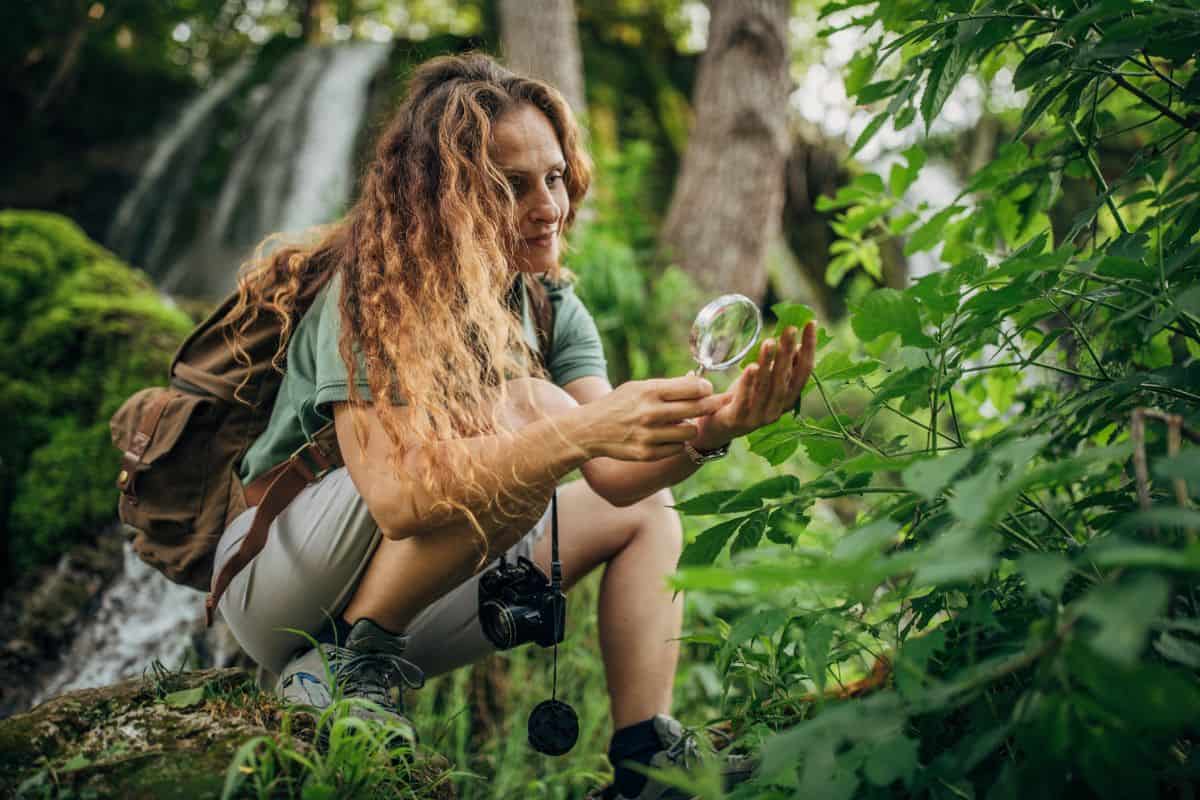
Jobs that study animals refer to professions or roles in which individuals research, observe, analyze, and document animal behaviors, physical characteristics, habitats, and interactions. These jobs often fall within fields such as zoology, veterinary science, marine biology, ethology, wildlife biology, and conservation science.
They may involve tasks such as conducting fieldwork to study animals in their natural environments, carrying out laboratory experiments, compiling data for research studies, or contributing to conservation efforts. Examples of these jobs include zookeepers, wildlife biologists, marine biologists, veterinarians, animal behaviorists, and ecologists.
A cetologist is a scientist who specializes in the study of cetaceans, which include whales, dolphins, and porpoises. They conduct research on cetacean behavior, ecology, communication, and conservation. Cetologists may work in the field, collecting data through observation and study, or in laboratories, analyzing samples and conducting experiments.
An entomologist is a scientist who specializes in the study of insects. They examine insect anatomy, behavior, classification, ecology, and their impact on ecosystems and human activities. Entomologists may work in fields such as agriculture, public health, biodiversity conservation, or research and contribute to understanding insect species and developing insect control strategies.
An ethologist is a scientist who studies animal behavior, particularly focusing on understanding their natural instincts and evolutionary adaptations. Ethologists conduct research on various species to investigate behaviors such as mating, communication, foraging, and social interactions. Their findings contribute to our understanding of animal behavior and aid in conservation efforts.
A herpetologist is a scientist who studies reptiles and amphibians. They investigate various aspects of these animals, including their behavior, ecology, physiology, and conservation. Herpetologists may conduct field research, analyze specimens in laboratories, and contribute to the understanding and conservation of reptile and amphibian species.
An ichthyologist is a scientist who specializes in the study of fish. They examine fish anatomy, physiology, behavior, and their interactions with their aquatic environments. Ichthyologists may conduct research on various fish species, contribute to fisheries management, and study the impacts of human activities on fish populations and aquatic ecosystems.
A mammologist is a scientist who specializes in the study of mammals. They research various aspects of mammalian biology, behavior, taxonomy, and ecology. Mammologists may focus on specific groups of mammals or study mammal populations in specific habitats. Their work contributes to our understanding of mammalian diversity and conservation.
A marine biologist is a scientist who studies marine organisms, their ecosystems, and the impact of human activities on the marine environment. They research marine species, habitats, and processes, and may specialize in areas such as marine conservation, fisheries management, marine ecology, or marine mammalogy. Marine biologists may work in research institutions, government agencies, or conservation organizations.
An ornithologist is a scientist who specializes in the study of birds. They investigate various aspects of avian biology, including taxonomy, behavior, migration, ecology, and conservation. Ornithologists may conduct field research, study bird populations, and contribute to understanding avian evolution and ecology.
A wildlife biologist studies various aspects of wildlife species, including their behavior, ecology, distribution, and population dynamics. They conduct research, collect and analyze data, and contribute to wildlife conservation efforts. Wildlife biologists may work in research institutions, government agencies, or conservation organizations.
A zoologist is a scientist who studies biology, behavior, evolution, and the ecological relationships between animals. They may specialize in specific animal groups or study broader aspects of animal life. Zoologists conduct field research, collect and analyze data, and contribute to understanding animal diversity, conservation, and ecological processes.
As we conclude this insightful journey into the world of animal jobs, we invite you to consider turning your passion for animals into a fulfilling career. With over 40 diverse paths explored, ranging from the companionship of therapy dogs to the conservation of wildlife, the possibilities are as vast and varied as the animal kingdom itself.
If you're inspired to embark on a rewarding career in animal care, The Academy of Pet Careers is here to guide you. Explore the potential of starting a pet career with us, where dedication to animal welfare and a commitment to excellence in pet care come together. Begin your exciting journey at The Academy of Pet Careers and turn your passion for animals into an exciting career.
 Author - Joseph Schifano
Author - Joseph Schifano
Joseph Schifano is the owner and President of The Academy of Pet Careers. With over 20 years of experience working in the pet field, managing large scale pet care businesses, he has experience in every facet of the industry. Joseph's focus is primarily on the business of pet care but his passion is in understanding animal behavior how a dog's brain works so we can improve the care we provide as pet professionals. He is a huge advocate for Pet Empowerment and Force Free training methods. Read more in Joseph's full bio.
